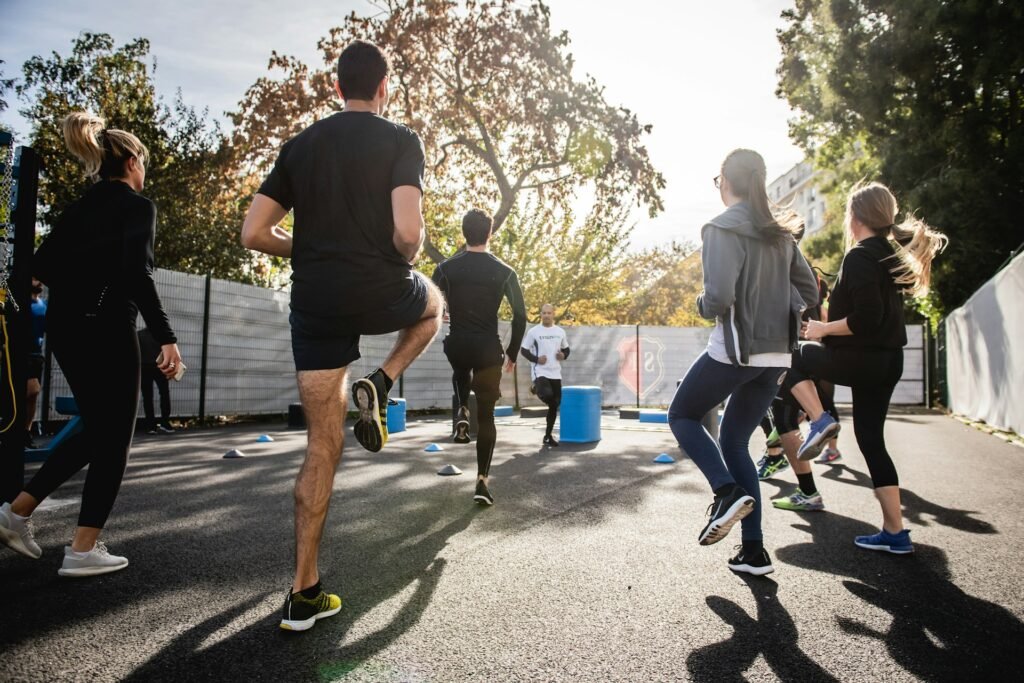What is Physical Health?
Physical health pertains to the well-being of the body, where optimal functioning is achieved through proper care, exercise, and nutrition. It forms the foundation of an energetic and fulfilling life, highlighting the need for a balanced approach to daily living.
Importance of Maintaining Good Physical Health
Maintaining good health is crucial as it directly impacts one’s mental health, productivity, and the ability to enjoy life. A robust physical condition allows individuals to perform their daily activities without undue fatigue or physical stress, enhancing overall life satisfaction.
Components of Physical Health
Physical Fitness
Physical fitness is a core component of physical health’s, involving regular physical activity to strengthen the heart, lungs, and muscles, leading to increased stamina and endurance.
Nutrition and Diet
A balanced diet rich in essential nutrients supports body functions and helps in the maintenance of overall health. Proper dietary habits foster a healthy weight and reduce the risk of chronic diseases.
Sleep Patterns
Adequate sleep is a pillar of good health. Quality sleep helps in the repair and rejuvenation of the body, supporting cognitive function and emotional balance.
Benefits of a Physically Healthy Lifestyle
Enhanced Mental Health
A physically healthy lifestyle promotes better mental health by reducing anxiety, depression, and mood swings. Regular exercise releases endorphins, often referred to as the body’s natural mood lifters.
Increased Longevity
Studies show that maintaining health can add years to one’s life. It reduces the risk of developing life-threatening conditions such as heart disease, diabetes, and obesity.
Improved Quality of Life
Good physical health enhances the quality of life by enabling active participation in various activities and minimizing physical limitations.
Common Challenges to Physical Health
Sedentary Lifestyles
The modern sedentary lifestyle is a significant threat to health. It is associated with numerous health issues, including obesity and cardiovascular diseases.
Unhealthy Eating Habits
Fast food and processed foods contribute to poor health outcomes. Educating oneself about nutritional values and adopting healthier eating habits are vital steps towards improving physical health’s.
Stress Management
Chronic stress can lead to severe health problems. Effective stress management techniques like mindfulness, meditation, and regular physical activity are essential for maintaining physical and mental health.
Strategies for Improving Physical Health’s
Exercise Routines
Incorporating a variety of physical activities such as walking, cycling, yoga, or sports can significantly enhance one’s health profile.
Balanced Diet Tips
Eating a variety of foods from all food groups ensures a balanced intake of nutrients. Planning meals and understanding portion control can lead to better health.
Stress Reduction Techniques
Regular relaxation and proper time management help in reducing stress levels, thus promoting better physical health.
Monitoring Your Physical Health
Regular Health Check-Ups
Annual or biannual health screenings are crucial for detecting any early signs of health issues, allowing for timely intervention.
Fitness Tracking Tools
Modern technology offers various tools that help monitor health, such as fitness bands and health monitoring apps, which track physical activity, sleep patterns, and heart rate.
Physical Health Across Different Life Stages
Children and Adolescents
Instilling good health habits from a young age sets the foundation for a healthy life. Physical activity and proper nutrition are crucial during these developmental years.
Seniors
For the elderly, maintaining mobility and managing chronic conditions are crucial. Tailored exercise programs and regular health check-ups can help seniors lead a more comfortable life.
Impact of Environment on Physical Health
Urban vs Rural Living
The living environment significantly affects health. Urban areas might offer better healthcare facilities, while rural areas often provide more space for physical activity.
Pollution and Health
Environmental pollutants can adversely affect health. Understanding and mitigating exposure to pollutants is important for maintaining good health.
Leveraging Technology for Physical Health
Fitness Apps
Fitness apps are excellent tools for setting fitness goals, tracking progress, and staying motivated. They offer customized workout routines and diet tracking options.
Wearable Health Devices
Wearable devices like fitness trackers and smartwatches help monitor heart rate, steps taken, and calories burned, providing insights into one’s physical health’s status.
Physical Health’s Myths Debunked
Common Misconceptions Debunking common myths about health is crucial for proper understanding and effective management of one’s health.
Resources for Further Information
Recommended Readings
Books, research papers, and articles written by health professionals provide deep insights into maintaining physical health.
Online Platforms
Websites, blogs, and forums dedicated to health can offer support and information tailored to individual needs.
Summary and Future Outlook
Recap of Key Points This article explored the essential components, benefits, and strategies for maintaining physical health’s.
Future Trends in Physical Health Care
The future of physical health care looks promising with advancements in technology and an increased focus on preventive care. Staying informed and proactive about health will continue to be essential.

